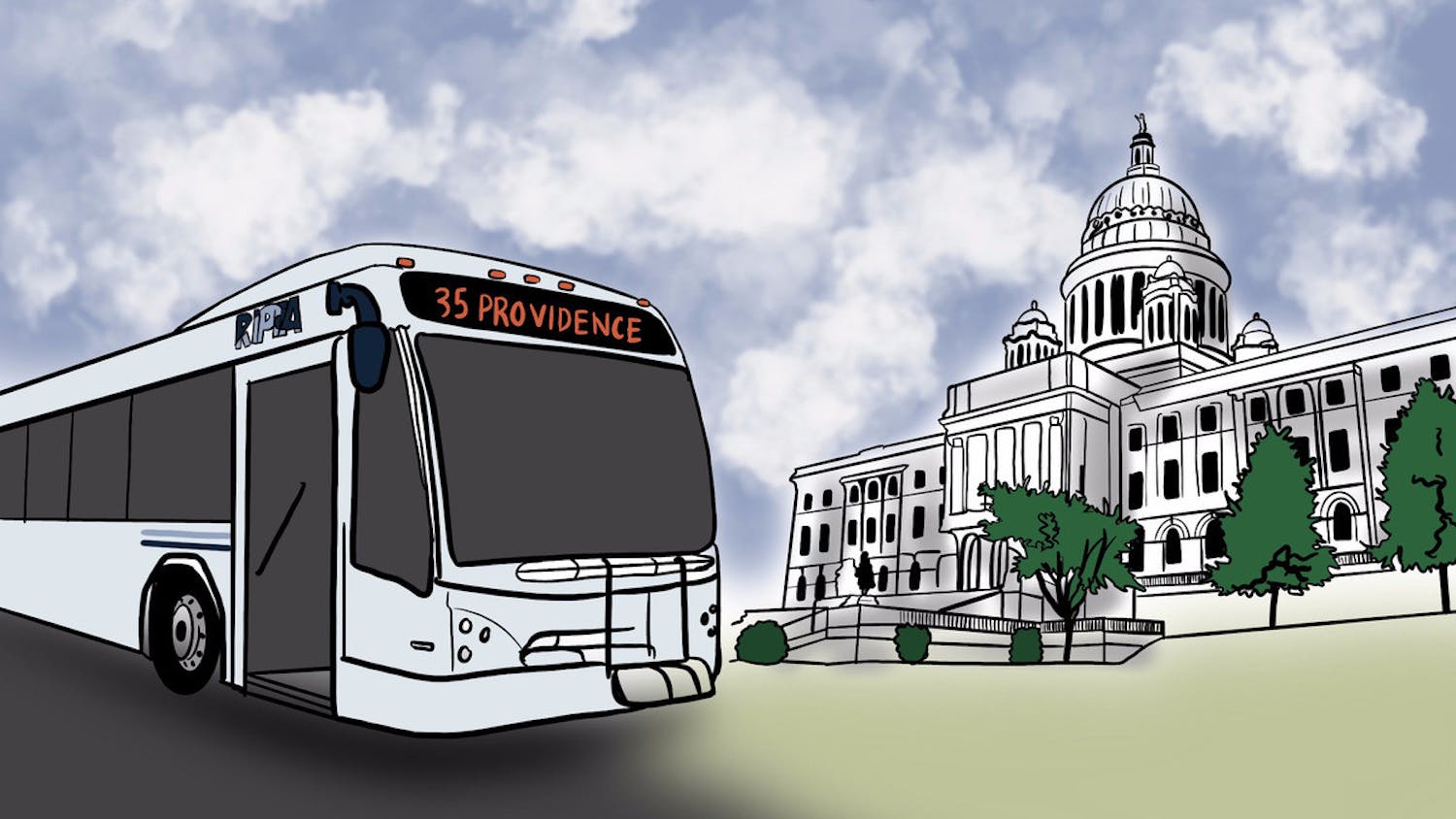“One should not be afraid to try something new,” said Nobel laureate H. Robert Horvitz to an audience of high school students and University community members at the Providence Career and Technical Academy Wednesday.
Horvitz received the Nobel Prize in Physiology or Medicine in 2002 for research that helped define molecular genetic pathways. His findings contributed to studies of neurodegenerative diseases such as Alzheimer’s disease and Amyotrophic lateral sclerosis (ALS), according to the Society for Science and the Public website. Horvitz also serves as chairman of the Board of Trustees for the society — a nonprofit focused on expanding interest, engagement and education in the sciences.
Horvitz spoke to an audience of almost 400 people — including Students from Classical and Central high schools and the Providence Career and Technical Academy along with several faculty members and students from the University — about the relevance of science in medicine, technology, public policy and the patterns of daily life.
“Science affects everything in our lives — the food you eat, what you wear, the weather outside,” Horvitz said. “Everything you do is somehow being interfaced with science.”
Until his senior year as an undergraduate at the Massachusetts Institute of Technology, Horvitz had never even taken a biology class, he said.
“Don’t worry that what you have done yesterday will define who you are tomorrow,” Horvitz said, encouraging those who have never shown interest in scientific study. “You always have the opportunity to change.”
Much of Horvitz’s work has been basic research — work that focuses on the acquisition of knowledge with no specific intended applications. “Basic research,” Horvitz said, “is the driver of scientific knowledge.”
Private companies have little incentive to pursue basic research, so the government is the primary source of its financial support, Horvitz said. It is important that governments understand how research contributes to the function of everyday life, he said, adding that “government policies should be informed by science.”
“We want (students) to start thinking like scientists,” said Donna Casanova, science supervisor for grades K-12 for Providence Public Schools.
Providence Public Schools are transitioning to a new array of science curriculum standards, Casanova said. The Next Generation Science Standards — new benchmarks intended to fit with the Common Core math, reading and writing curriculum — will demand students begin inquiry-based work, she added.
The University has partnered with the school district to offer a wide array of programs intended to enhance collaboration, said Carrie Feliz, director of strategic community partnership for Providence Public Schools. Every university in the area now has established partnerships with the district, she said.
“It is extremely important that people look for people like them who can serve as mentors,” Horvitz said, referring to a need for diverse role models in the sciences.
Minority groups, particularly women of color, are still underrepresented in the sciences, Feliz said. “Of course we want to have students engaging with people who can relate to their personal background and experiences,” she added.
Computational biology concentrator Ben Siranosian ’15 attended the lecture to take advantage of the unique opportunity. “Any chance to see a lecture by a Nobel laureate is something to take advantage of, but I am also very interested in the ways the Brown community can help the Providence school district, especially in the sciences,” he said.
“I think we should have more lectures like this,” said Amilcar Marroquin, a senior at Classical High School. “Students should really focus more on science, because it plays a major role in our futures.”
“This guy is really committed to a public understanding of what the problems are,” said Professor Emeritus of Engineering Barrett Hazeltine GP ’15, who introduced Horvitz at today’s lecture. “We don’t have a lot of scientists like that.”
Horvitz encouraged students in attendance to achieve their highest potentials and finished the talk with the message, “Do not be afraid to pursue your dreams.”
Due to an editing error, a previous version of this article incorrectly stated that Donna Casanova is the science supervisor for grades K-8 for Providence Public Schools. In fact, she is the science supervisor for grades K-12. The Herald regrets the error.
ADVERTISEMENT




